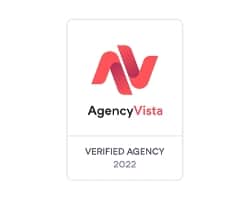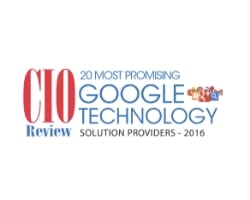Fostering and maintaining strong relationships with customers is paramount for sustained success. Enter the Customer Relationship Management (CRM) strategy – a multifaceted approach for businesses that serves as the cornerstone of effective marketing efforts. In this blog, we delve into the significance of a well-crafted CRM strategy and provide insights into its successful implementation for achieving marketing excellence.
Understanding the Customer Relationship Management Strategy
A Customer Relationship Management (CRM) strategy is an intricate framework designed to cultivate, nurture, and manage interactions with customers throughout their journey with a brand. It encompasses a range of activities, technologies, and processes aimed at comprehending customer behaviors, preferences, and needs. The goal of a CRM strategy is to tailor marketing initiatives, sales efforts, and customer service interactions to provide a seamless, personalized, and satisfying experience to customers.
Key Components of a CRM Strategy
Data Collection and Analysis: At the heart of any CRM strategy lies data. Gathering and analyzing data related to customer behaviors, purchase history, feedback, and preferences provides invaluable insights into understanding customer segments and their requirements.
Segmentation and Targeting: Effective CRM strategies categorize customers into segments based on shared characteristics. This allows businesses to tailor marketing messages and offers to specific customer groups, maximizing the relevance and impact of their campaigns.
Personalization: Personalized marketing has become a driving force in contemporary consumer engagement. A robust CRM strategy enables businesses to create personalized experiences by delivering content, recommendations, and offers tailored to individual customer preferences.
Customer Lifecycle Management: Understanding the stages of the customer journey is crucial. A well-defined CRM strategy maps out the touchpoints and interactions at each stage, ensuring consistent and meaningful engagement.
Multichannel Integration: Modern consumers engage with brands across various channels – from social media to email, websites, and more. An effective CRM strategy integrates these channels to provide a unified customer experience.
Automation and Workflows: Automation streamlines repetitive tasks, allowing marketing teams to focus on high-value activities. Workflows within a CRM system automate tasks such as sending follow-up emails, triggering responses based on customer actions, and more.
Feedback and Continuous Improvement: A dynamic CRM strategy incorporates mechanisms for collecting and analyzing customer feedback. This feedback loop provides insights for continuous improvement, enhancing both products and customer experiences.
Benefits of Implementing a CRM Strategy
Enhanced Customer Understanding: A well-implemented CRM strategy provides businesses with a deeper understanding of their customers, enabling them to anticipate needs, preferences, and behaviors.
Improved Customer Retention: By nurturing strong relationships and offering personalized experiences, a CRM strategy contributes to higher customer retention rates. Loyal customers are more likely to make repeat purchases and recommend the brand to others.
Optimized Marketing Campaigns: Tailoring marketing campaigns to specific customer segments increases the chances of resonating with the target audience, leading to higher conversion rates and engagement levels.
Increased Efficiency: Automation and streamlined workflows within a CRM strategy free up time and resources for marketing teams, allowing them to focus on creativity, strategy, and innovation.
Data-Driven Decision Making: A data-rich CRM strategy empowers businesses to make informed decisions based on real-time insights. This leads to more effective allocation of resources and investment in the right marketing initiatives.
Scalability: As businesses grow, maintaining personalized customer interactions can become challenging. A CRM strategy scales effectively, ensuring consistent customer experiences across a larger customer base.
Implementing a Successful CRM Strategy
Define Clear Objectives: The first step in implementing a CRM strategy is to define clear objectives. Whether it’s improving customer retention, increasing sales, or enhancing customer satisfaction, align your strategy with measurable goals.
Choose the Right CRM System: Selecting a suitable CRM system is pivotal. Consider factors such as scalability, integration capabilities, user-friendliness, and the ability to customize features to match your business needs.
Multichannel Integration: Ensure your CRM strategy covers all relevant customer touchpoints. Seamlessly integrate channels such as email, social media, and websites for a consistent experience.
Training and Adoption: Train your marketing and sales teams on effectively using the CRM system. Encourage adoption and emphasize the benefits of the system for enhancing customer interactions.
Conclusion
Implementing a customer relationship management strategy is not just an option – it’s a necessity. A well-crafted CRM strategy provides businesses with the tools to effectively understand, engage, and retain customers. By embracing data-driven insights, personalization, and multichannel integration, companies can unlock marketing success that translates into improved customer satisfaction, higher retention rates, and increased brand loyalty. As technology and customer behaviors continue to evolve, the CRM strategy remains a steadfast beacon guiding businesses toward sustainable growth and unparalleled marketing excellence.
About Millennium Agency
Millennium Agency is a nationally recognized, top woman led B2B branding, positioning, and digital marketing firm who creates value that builds emotionally impactful brands that influences your customer’s buying decision, giving you the competitive advantage. As your industry partner for B2B pharma/biotech, technology and manufacturing, our proprietary research-based framework makes a strong impact and accelerates your brand growth. While you focus on what you do best – running your business successfully – our team will build your brand, and drive leads. For more information, call 877-873-7445 or schedule time here.


























